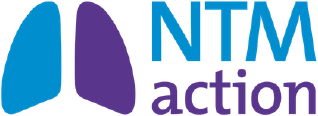rifampicin 300 mg b.i.d. (600 mg/day), azithromycin 500 mg/day OR isoniazid 300 mg/day, ethambutol 15 mg/kg/day

Evidence for answers
As described in the 2020 International guideline:
- in patients with rifampicin-susceptible kansasii pulmonary disease, we suggest a regimen of rifampicin, ethambutol, and either isoniazid or macrolide
- neither parenteral amikacin nor streptomycin should be used routinely for treating patients with kansasii pulmonary disease.
Ongoing medications
Omeprazole 20 mg b.i.d.
Polyethylene glycol plus mineral salts 13.8g b.i.d.
Pancreatin 25,000 8 capsules over 24 hours
Multivitamin/minerals 1 capsule every 24 hours
Calcium carbonate and Vitamin D 1/2 (500 mg calcium carbonate [25 mEq Calcium equivalent] and 400 IU Vitamin D)
Calcifediol (Vitamin D3) 266 μg/1.5 mL ampoule (oral liquid administration)
Inhaled olodaterol/tiotropium 2.5/2.5 μg 2 puffs in 24 hours
Inhaled salbutamol 0.1 mg 2 puffs
Acetylcysteine 600 mg
Inhaled hypertonic saline/hyaluronic acid b.i.d.
Lactobacillus 1.5g daily
Newly prescribed medications
Daily
Oral azithromycin 500 mg/day
Oral rifampicin 300 mg b.i.d.
Oral ethambutol 400 mg b.i.d.
On alternate days
Inhaled colistin 1,662,600 IU
Oral amikacin 500 mg/day
Guidelines published in 2020 for NTM-PD recommend that treatment for M. kansasii should be rifampicin based and given the uncertain value of isoniazid, macrolides are increasingly included.1 The guideline recommends a multi-drug regimen of rifampicin, ethambutol and either isoniazid or macrolide. In this case, as this is the first isolation of M. kansasii and she demonstrates susceptibility to clarithromycin (and therefore azithromycin) inclusion of a macrolide would be appropriate. Guidelines do not recommend the addition of amikacin or streptomycin when a rifampicin-based triple therapy including ethambutol and a macrolide or isoniazid can be used.1 In this patient additional antibiotics of inhaled colistin and oral amikacin 500 mg/day are included with a view to targeting the Pseudomonas infection including MDR strains. Inhaled colistin is recommended in patients with CF or bronchiectasis and Pseudomonas infection.2,3 New infections with Pseudomonas in patients with CF are likely to progress to chronic infection which is associated with worsening lung function, so prompt therapy is indicated.3
References:
- Daley CL et al. Eur Respir J 2020;56:2000535
- Polverino E et al. Eur Respir J 2017;50:1700629
- Castellani C et al. J Cyst Fibros 2018;17:153–78


